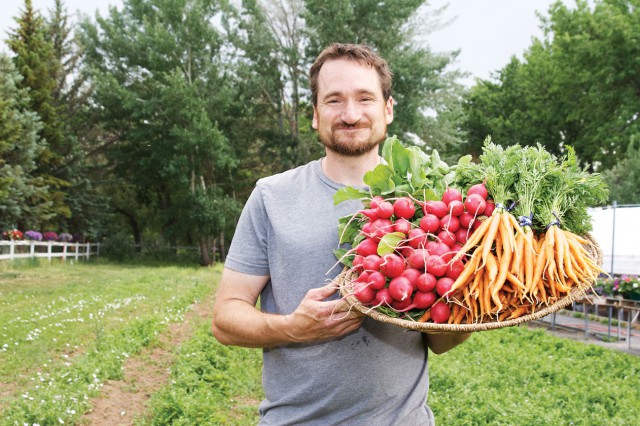
The 2012 Colorado Cottage Foods Act was supposed to allow farmers and entrepreneurs the opportunity to make foods in their home kitchens and sell them to consumers, offering farmers an extra revenue stream and entrepreneurs a testing ground for business ideas.
The legislation intended to allow farmers to prepare “nonpotentially hazardous” foods from their produce — spices, teas, dehydrated produce, nuts, seeds, honey, jams, fruit, butter, baked goods and candies — without having to use a commercial kitchen, a demand which would require them to either build one of their own or rent out space in one somewhere else.
But language problems in the original bill ended up erecting roadblocks in front of those seeking to make cottage foods. The bill required farmers to take a food-safety training course, but it didn’t specify any particular one. So the Colorado Department of Public Health and Environment (CDPHE), tasked with enforcing the law, decided that farmers would need to take a certification course intended for food managers at restaurants, which came with a costly price tag and required farmers to take a proctored exam, which struck many potential cottage foods producers as unnecessary.
“We were excited about it, as were a lot of people, and then we ran into some bureaucratic red tape,” says Mark Guttridge of Longmont’s Ollin Farms. “It really ended up being too much red tape, too much uncertainty. We sort of lost a lot of the enthusiasm.”
The course seemed over the top to some beekeepers, who were required to receive training in running a commercial kitchen just to sell a few dozen jars of honey, says Beth Conrey, president of the Colorado State Beekeepers Association.
“[The training] was really for food managers in a restaurant-type setting, and the cottage industry only really applied to non-potentially hazardous foods, which was sort of overkill for selling honey,” Conrey says.
Another issue arose in the sale of eggs, which were originally intended to be defined as cottage foods. The law allowed farmers to sell up to 250 dozen eggs per month on their property without needing any license or state certification, and the Cottage Foods Act sought to extend that to farmers’ markets as well. Again, though, the CDPHE interpreted the bill otherwise.
“Our eggs are probably our most popular item on the farm,” Guttridge says. “In order to sell them off the farm on the farmers’ market, the [CDPHE] wants us to certify … for a $250 fee. I’d rather not.”
So Sen. Gail Schwartz (D-Snowmass), who initially sponsored the 2012 act, set about to clean up the language in the bill to make the intent clearer to the CDPHE. She switched the training requirement from the level of someone managing a restaurant to someone merely working at a restaurant. She eliminated a few required licenses that the bill inadvertently mandated farmers get. And she changed the wording so farmers could sell eggs at farmers’ markets as well as at the farm.
The bill introduced a legal path for something people had been doing under the table regardless, Schwartz says.
“What was happening prior to the bill, people were producing food in their kitchen without inspection, but also without labeling, without enough information to tell the consumer exactly what they were buying,” she says. “You build in the accountability, let people make the choice if they want to buy your baked goods or your canned goods. … We have a very comprehensive label for when someone does buy a product, and let’s say there is a problem, that jar will be at someone’s home with the contact information on it … and we would be able to trace that back.”
There’s no official registry of farmers and others who produce cottage foods, and the law actually didn’t include an enforcement provision. Jeff Lawrence, director of the Division of Environmental Health and Sustainability at the CDPHE, says that means that health agencies are less likely to actively enforce the law and rather would respond to complaints as they arrived.
“If, for instance, [there was] a query that someone was selling an unallowed food product, something that potentially had a public health concern, they would probably look at that with greater rigor that maybe someone selling 252 dozen a month of eggs,” Lawrence says.
Since the passage of the law, cottage foods producers have been sprouting up at farmers’ markets around the state. The Boulder County Farmers’ Markets in Boulder and Longmont do not allow cottage foods, but the ones in Louisville, Lafayette, Niwot, Broomfield and Westminster do, says Anne Zander, with the Colorado State Extension in Boulder County. Kelly Williams, the market manager for the farmers’ markets in Louisville and Lafayette, says she has two categories of cottage foods producers at the markets: farmers who make goods on the farm, and people making baked goods in their kitchens.
Louisville resident Andy Tanner, owner of Andy Bakes, is one of the bakers taking advantage of the Cottage Foods Act. He gets up at midnight the day before the Louisville Farmer’s Market to bake desserts, including a “kickass” ginger pound cake and an “awesome” triple chocolate brownie. He is testing the water via the farmers’ market right now and within a year hopes to open his own store. A lifelong baker, he says without the Cottage Foods Act, he never could have entered the marketplace.
“It had never occurred to me that [running a business] was something I could do from my home,” Tanner says.
Respond: [email protected]














